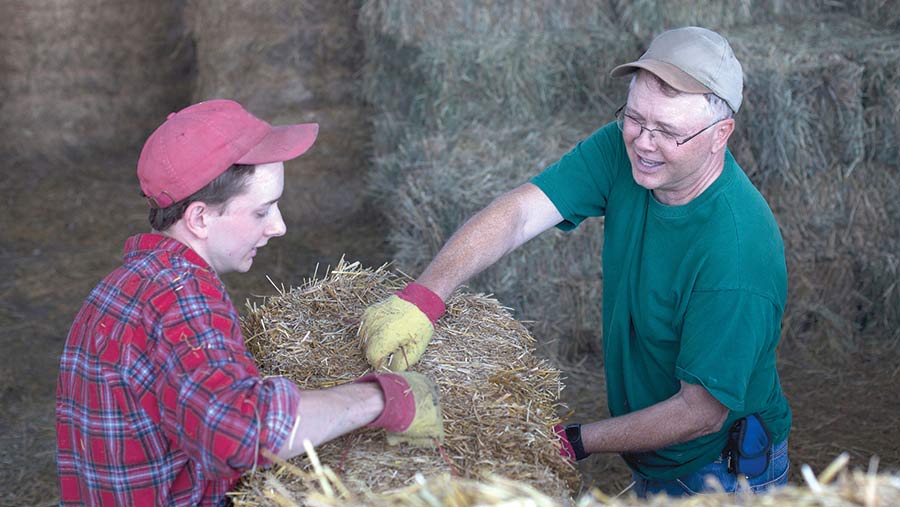Opinion: Apprenticeships can help bridge the skills gap
 © Image Source/REX/Shutterstock
© Image Source/REX/Shutterstock Over the past few weeks I’ve been riding a roller-coaster of information relating to apprenticeships and the new T Levels.
I feel honoured to be part of the vital process of making sure that our current and future apprentices and T Level students have the right education, understanding, skills and behaviours to succeed in our sector.
See also: A guide to qualification levels in agriculture
We face some huge challenges in the agriculture, environment and animal care industries at present, from the uncertainty of Brexit to the need to consistently produce sustainable, healthy food; reduce environmental impacts and greenhouse gas emissions; care for land, air and water; ensure world-class standards of animal health and welfare; and satisfy the demands of consumers, retailers and policymakers.
Given the right training and education, apprenticeships and T Levels can play a huge role in ensuring that we will have a sustainable and thriving agricultural industry in future.
Agriculture is vital for us all. We’re seeing far more media and consumer interest in how food is produced, yet there is a huge gap in understanding between many urban dwellers and those who work in agriculture.
This is compounded by the fact that we have an ageing farmer population with an average age of 60 years, meaning agriculture is not always regarded as a “sexy” industry by the average young person compared with, for example, media or fashion.
Although I am absolutely passionate about agriculture and my “day job” as a livestock sustainability consultant, I am somewhat unusual in that, unlike most people working within this industry, I did not grow up on a farm.
Instead, I grew up in academia among the dreaming spires of Oxford, with a somewhat storybook image of agriculture.
I was therefore amazed to learn, during my university studies, just how science-based an industry I was joining.
It’s almost 15 years since I completed my PhD, and the technological advances that have been made within agriculture, environment and animal care have been amazing.
From tractors and combine harvesters directed by GPS, to the use of novel feeds to reduce methane emissions from livestock and the application of heat-sensing technology to assess animal behaviour and welfare, science is omnipresent within our sector.
I recently had the opportunity to meet with young people at the Waterfront University Technical College (UTC) in Gillingham. It was an excellent example of a student population interested in science and engineering, but with few real-life experiences of agriculture.
Interestingly, the most common question (after “how much do you earn?”) was about the carbon footprint of food production.
Students wanted to know whether they should be choosing cheeseburgers if they want to be eco-friendly consumers, and whether the figures that they’d seen regarding the environmental impacts of meat production were correct or biased by source.
It was wonderful to see this evidence of independent thought and that the students were so aware of the challenges facing us, both in terms of producing food in a sustainable manner and needing to make evidence-based choices.
As an agricultural industry, it’s not enough to simply grow food. We need to educate the world around us.
And if we bring technically adept young apprentices and T Level students into our industry who have a passion for communicating via Twitter, Snapchat and Instagram, we can effectively spread positive messages to millions.
Jude Capper is a former Dairy Industry Woman of the Year and is chair of the Institute for Apprenticeships and Technical Education’s panel for agriculture, environment and animal care, which rolls out new apprenticeships across farming.
